The Holy Supper, features a meticulously curated spread known as the 12 Fasting Dishes – 12 пісних страв на Святвечір. Commemorating the birth of Jesus Christ, this festive occasion is steeped in traditions and celebratory customs that have endured through generations. Families gather on this special night for a twelve-dish feast, each laden with cultural significance, creating an atmosphere of warmth and spiritual connection.
While there are traditional dishes associated with Святий Вечір, the list isn’t rigid. Hosts have the liberty to tailor the menu to their preferences and regional influences. As we explore the 12 Dishes of Ukrainian Christmas, join us on a journey through the flavours, traditions, and stories that make this festive occasion a cherished part of Ukrainian cultural heritage.
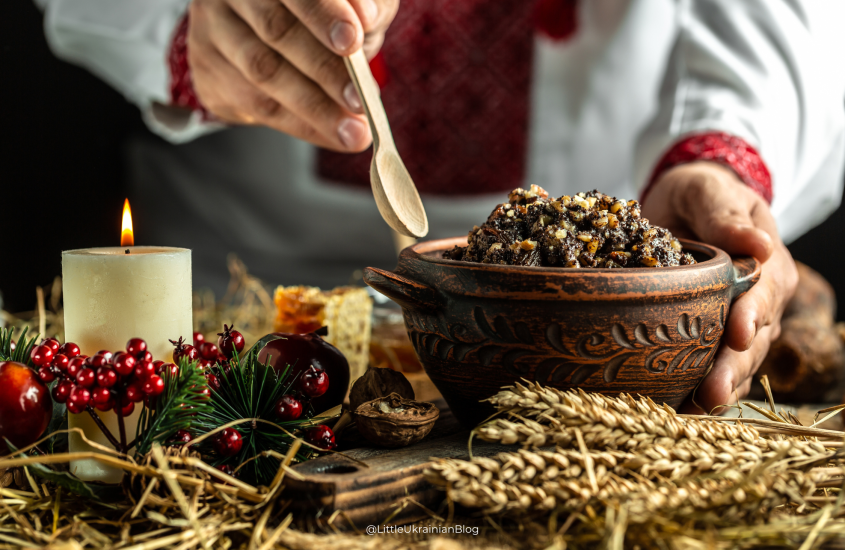
The 12 Dishes of Ukrainian Christmas
Traditionally, a day of abstinence precedes the Holy Supper, with fasting observed until the first star is spotted in the night sky. This abstention sets the stage for one of the most important meals of the year, where 12 lean dishes take centre stage. While the dishes are devoid of dairy or meat, a notable exception is made for fish, and each dish holds a high symbolic meaning.
Please note: In general, the main dishes of Christmas Eve are Kutia and Uzvar. All others can change, as each host has their own 12 traditional, ceremonial dishes dependent on regional or even family traditions. Kutia and Uzvar are also the only dishes that hold deep-rooted symbolism.
Contents
Kutya | Кутя
Kutya (or Kutia) is the most important dish for Sviatyi Vechir. The grain represents eternal life and prosperity, the honey symbolises heavenly bliss and good health, while poppy is a symbol of protection against evil forces.
Before starting to eat, the head of the family throws a spoonful of kutya to the ceiling. If a few grains stick – the year will be fruitful.
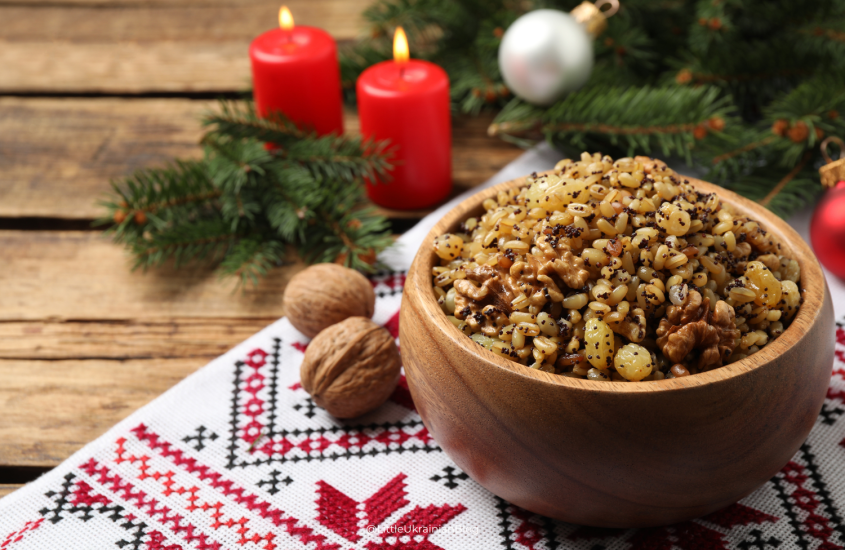
Borshch | Пісний борщ
The national dish of Ukraine, borshch is a distinctive Ukrainian beetroot soup with each oblast having their own variant of the soup. Traditionally, the soup includes a meat, such as beef or pork, and is topped with soured cream. However, for Sviatyi Vechir the dish must be vegan.
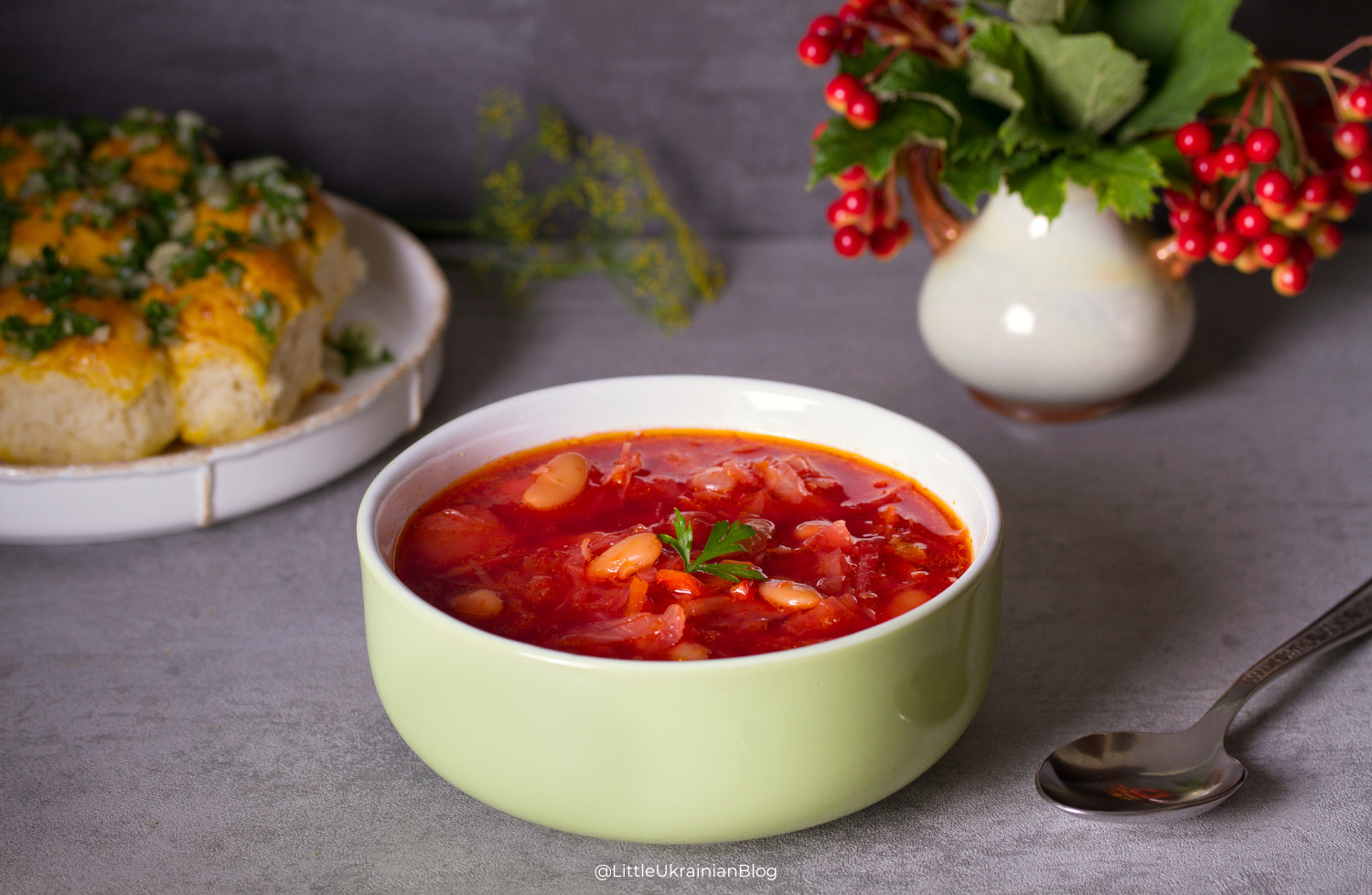
Mushroom Soup | Грибова юшка
Mushrooms represent fertility, embodying a dual symbolism of Jesus Christ’s earthly (leg) and divine or heavenly (cap) natures among the 12 Christmas dishes. During Christmas Eve, mushrooms are typically presented in pickled form or incorporated into a soup crafted from dried porcini mushrooms.
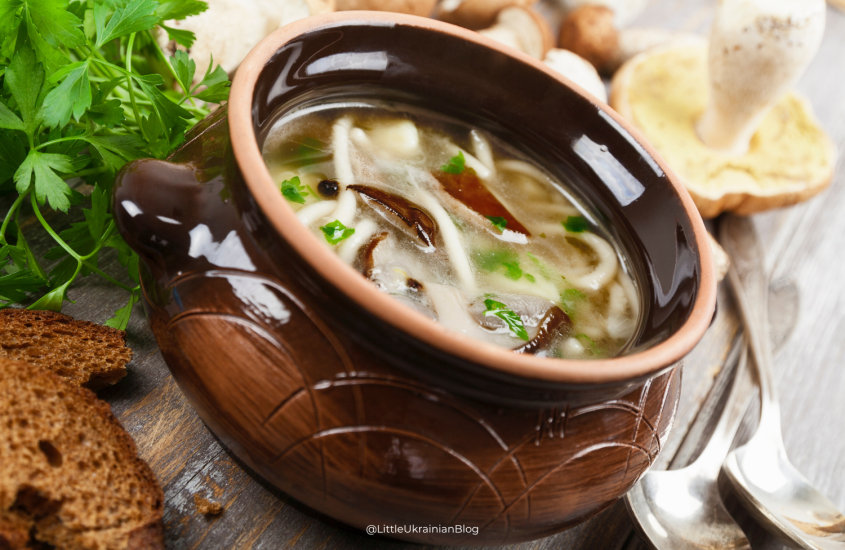
Holubtsi | Голубці
Holubtsi are a traditional dish consisting of blanched cabbage leaves, rice, and vegetables. When not cooked for Sviatyi Vechir, Holubtsi are typically filled with ground pork or beef.
Ukrainians regard this dish as a symbol of God’s love, the Holy Spirit, beauty and peace.
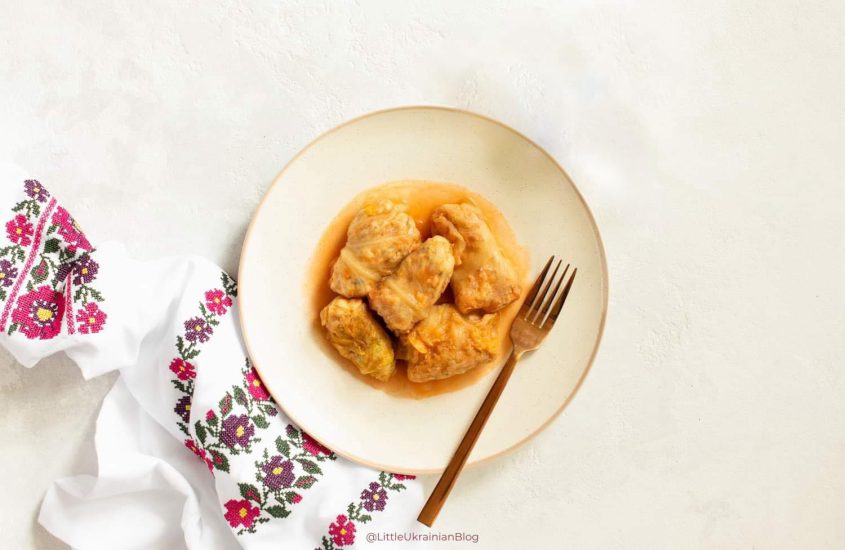
Varenyky | Вареники
A dish that needs no introduction to those with Ukrainian heritage, Varenyky is a national favourite. These dumplings are made by combining flour and water, filling them with traditional ingredients like cabbage, potato, and mushrooms, or sweet berries. They are then boiled and can be garnished with fried onions or mushrooms for added flavour.
Varenyky are regarded by some as a symbol of prosperity, wealth and well-being in the family for the whole year.
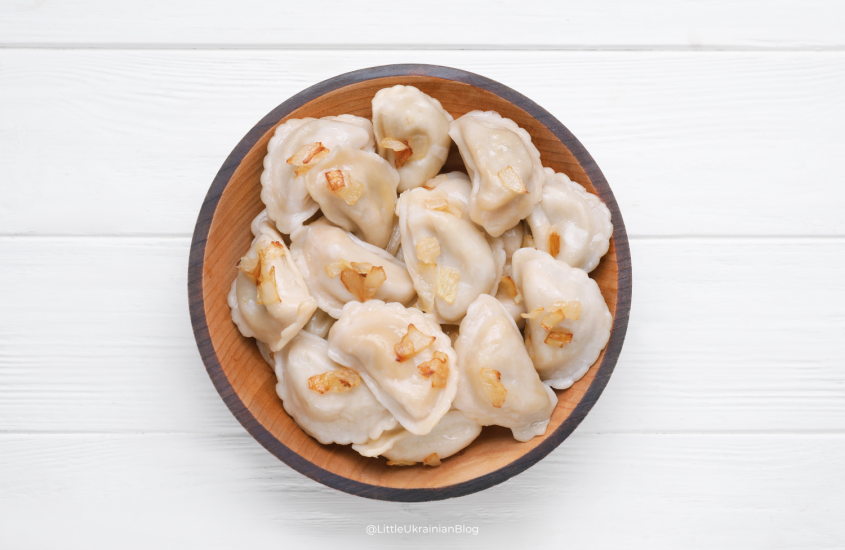
Marinated Herring | Маринований оселедець
With its roots as an ancient symbol of Christ, fish dishes take pride of place on the table every Sviatyi Vechir, symbolising the essence of Christian beliefs and the Holy Trinity. In early Christianity, fish was recognised as the first monogram of Christ. The Greek abbreviation ICHTIOS, meaning “fish,” was a significant representation of Jesus. Echoing the symbolism, the first disciples were destined to become “fishers of men.”
Marinated herring is usually served with lemon and onion, sometimes drizzled with oil.
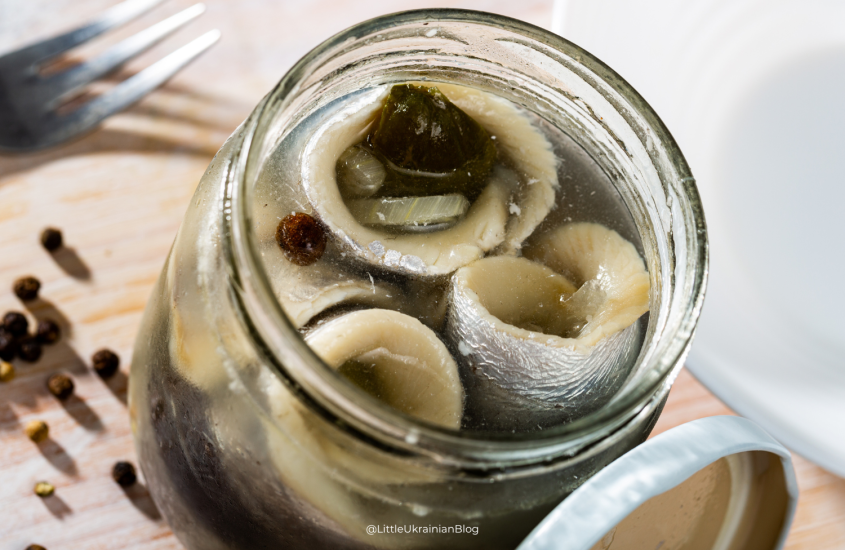
Stewed Cabbage | Тушкована капуста
Another addition to the Christmas table is stewed cabbage.
Cabbage symbolises unity around one base. That’s why there are so many dishes made from cabbage, as well as mushrooms, on the table on Christmas Eve.
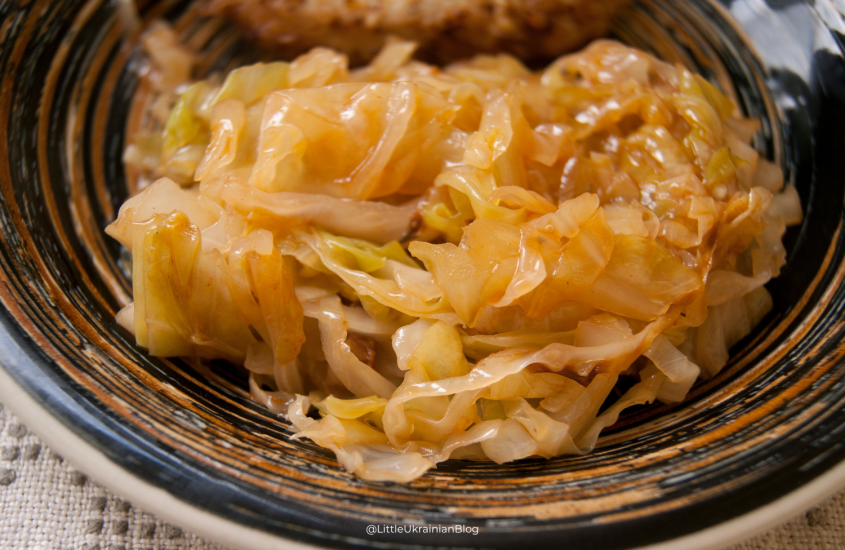
Pampushky | Пампушки
Sweet or savoury, pampushky are small, baked bread rolls. Savoury pampushky are similar to garlic bread and usually accompany borshch. When sweet, they closely resemble sugar-powdered donuts.
Pampushky represent the holiday spirit and the joy bestowed upon people by God. These donuts symbolise the Saints in Haven who, having faith in Jesus, received the gift of eternal life. They also convey a message that every individual on Earth is invited to embrace this sweet and eternal life.
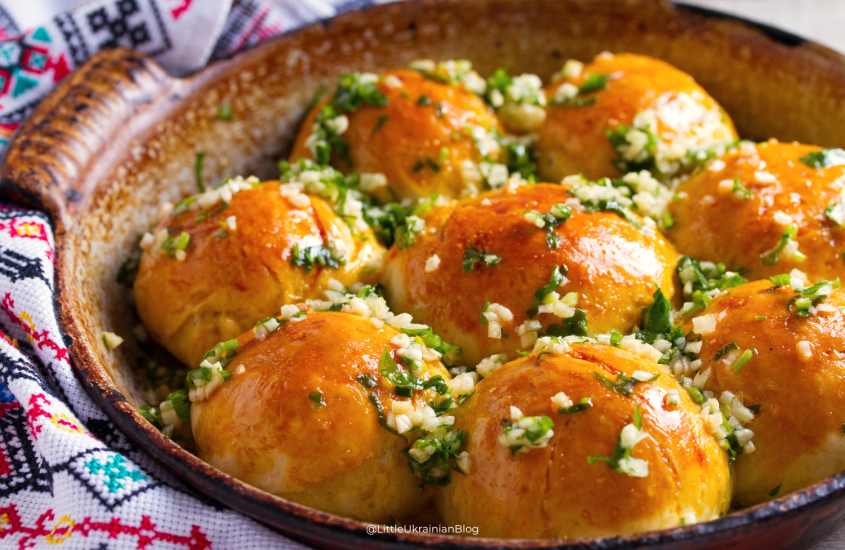
Jellied Fish | Заливна риба
Jellied fish adds an special touch to any celebratory spread. The dish’s flavour profile is heavily influenced by the choice of fish, with pike, salmon, zander, and salmon remaining the traditional selections.
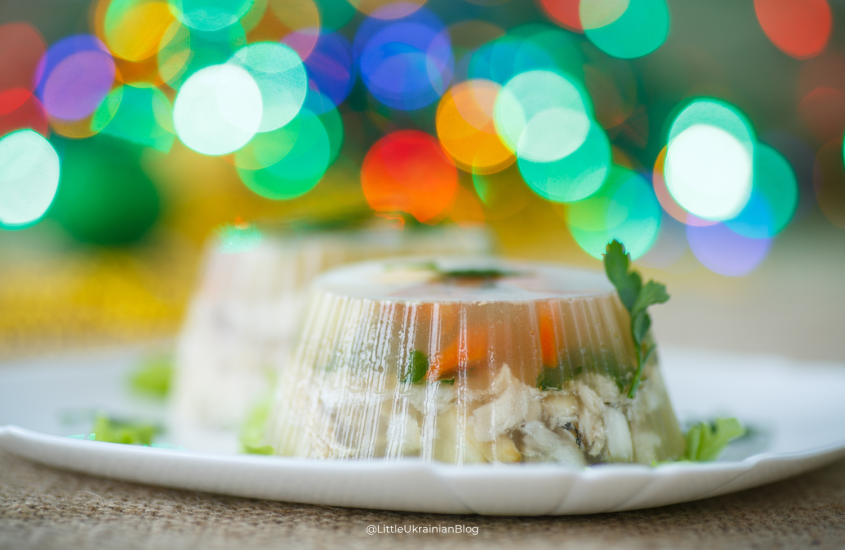
Pyrizhky | Пиріжки
Pyrizhky, a staple in Ukrainian cuisine, are small, handheld pastries typically filled with a variety of savoury ingredients such as meat, potatoes, or cabbage. These so-called “pies” are often baked or fried.
Pyrizhky are a symbol of health and happiness, which a person can get through their constant connection with Christ.
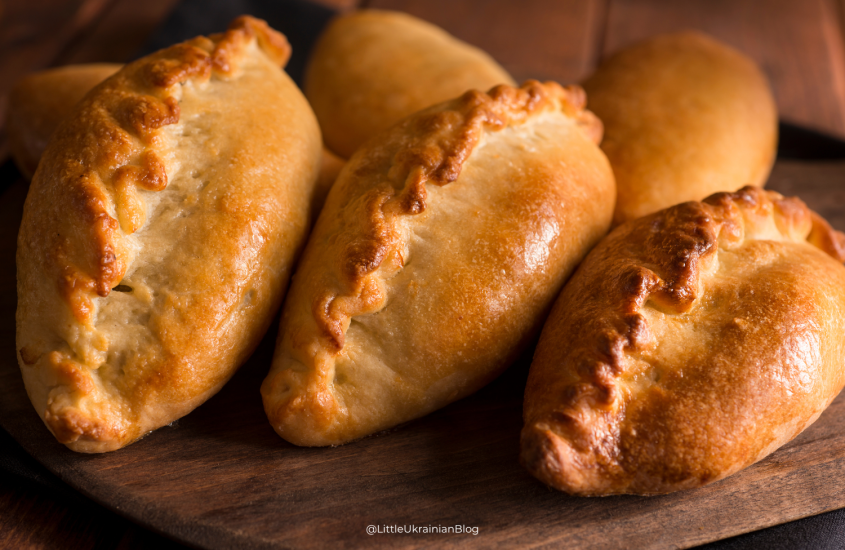
Beans | Квасоля
For Christians, this simple dish holds significance as a representation of God’s spring and rebirth. Additionally, it serves as a symbol of familial unity, as all family members come together around one table to celebrate Christmas on the Holy Eve. There are several variants of this dish, with the most typical being a white bean salad.
Pea and bean dishes hold significant importance on the Christmas Eve table, believed to usher prosperity into the household. These legumes also symbolise the eternal spring of God, signifying rejuvenation after periods of decline.
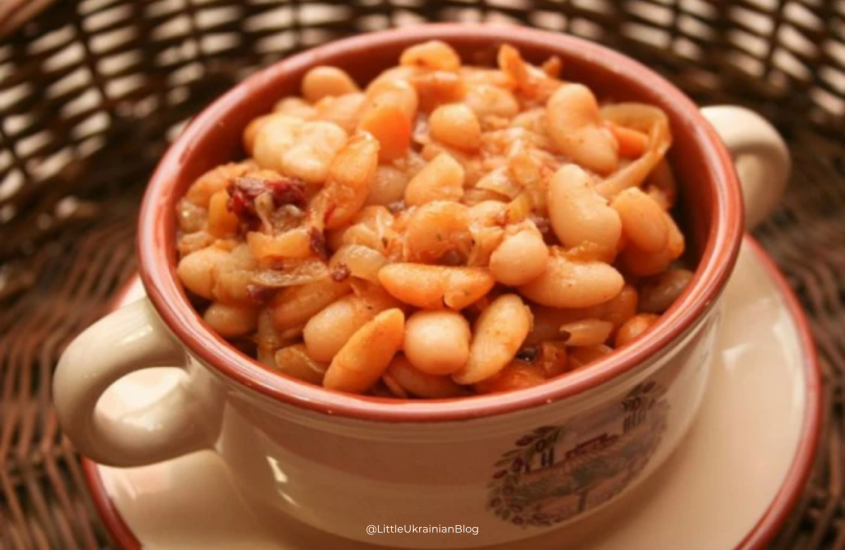
Uzvar | Узвар
After Kutia, Uzvar is the second most important dish for the evening. This is a non-alcoholic drink made with cooked dried fruits and berries.
Uzvar symbolises living water that cleanses the soul and body.
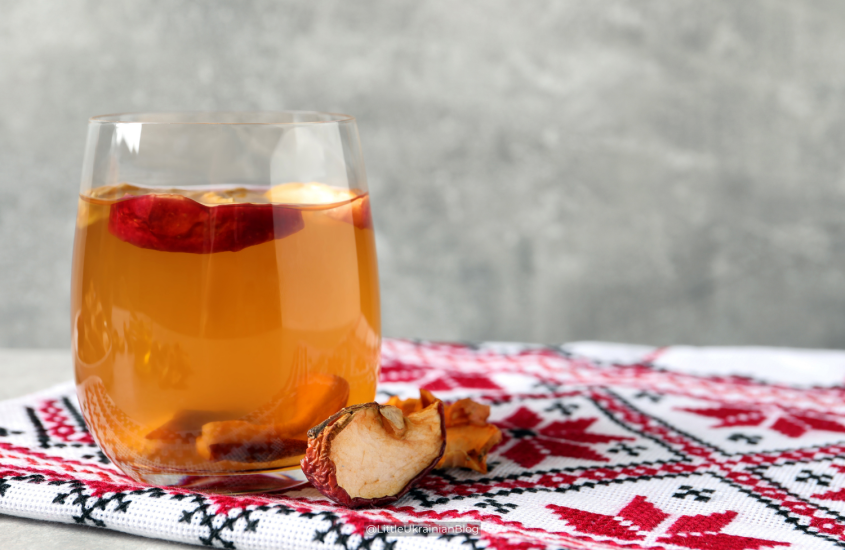
Did you enjoy this post?
We hope you enjoyed learning about the 12 dishes of Ukrainian Christmas. We’d love to hear about the dishes you prepare for your own Sviatyi Vechir meal.
Share your culinary traditions and connect with us on social media. Wishing you a joyous and meaningful celebration filled with delicious food, cherished traditions, and the warmth of shared moments. Христос рождається!
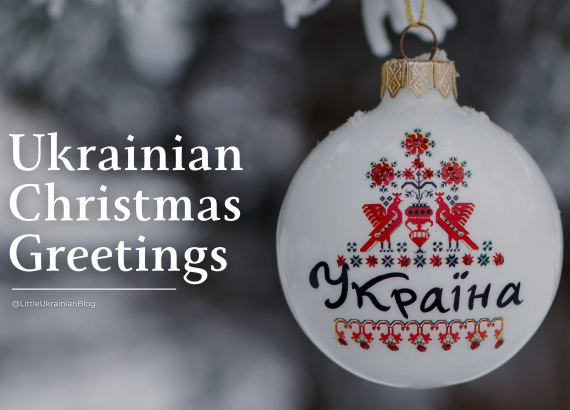
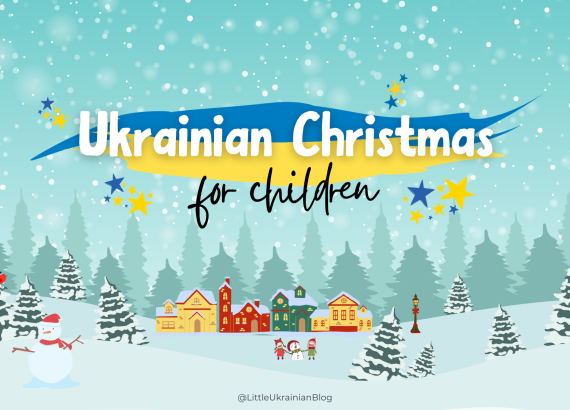
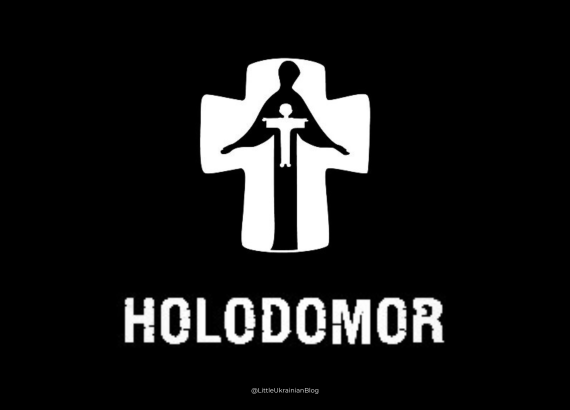
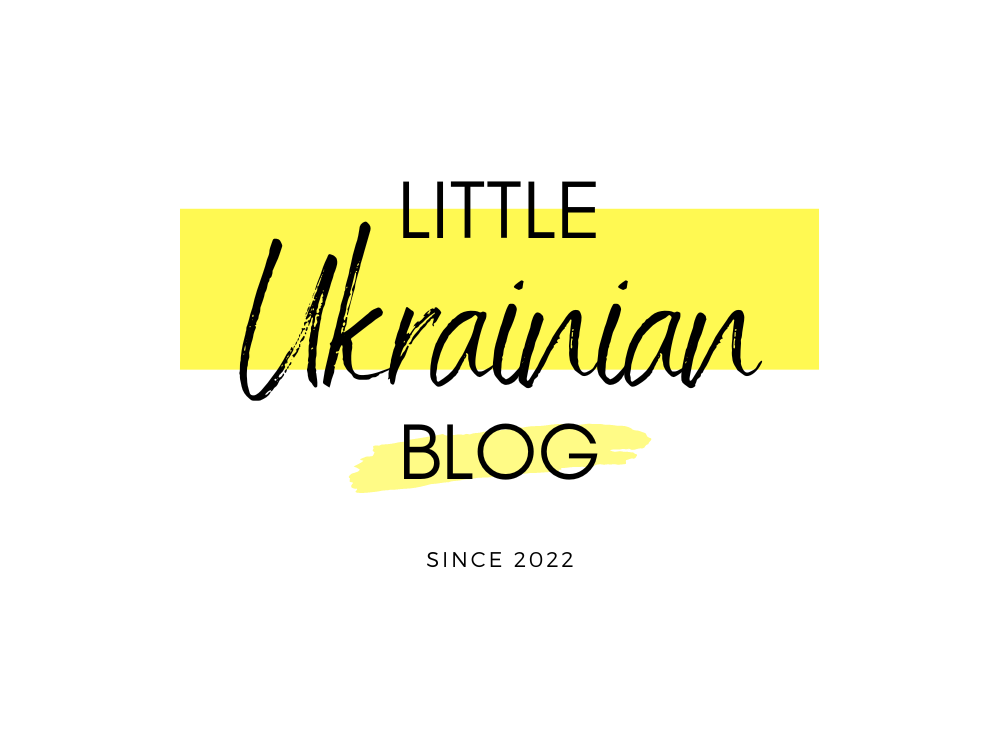
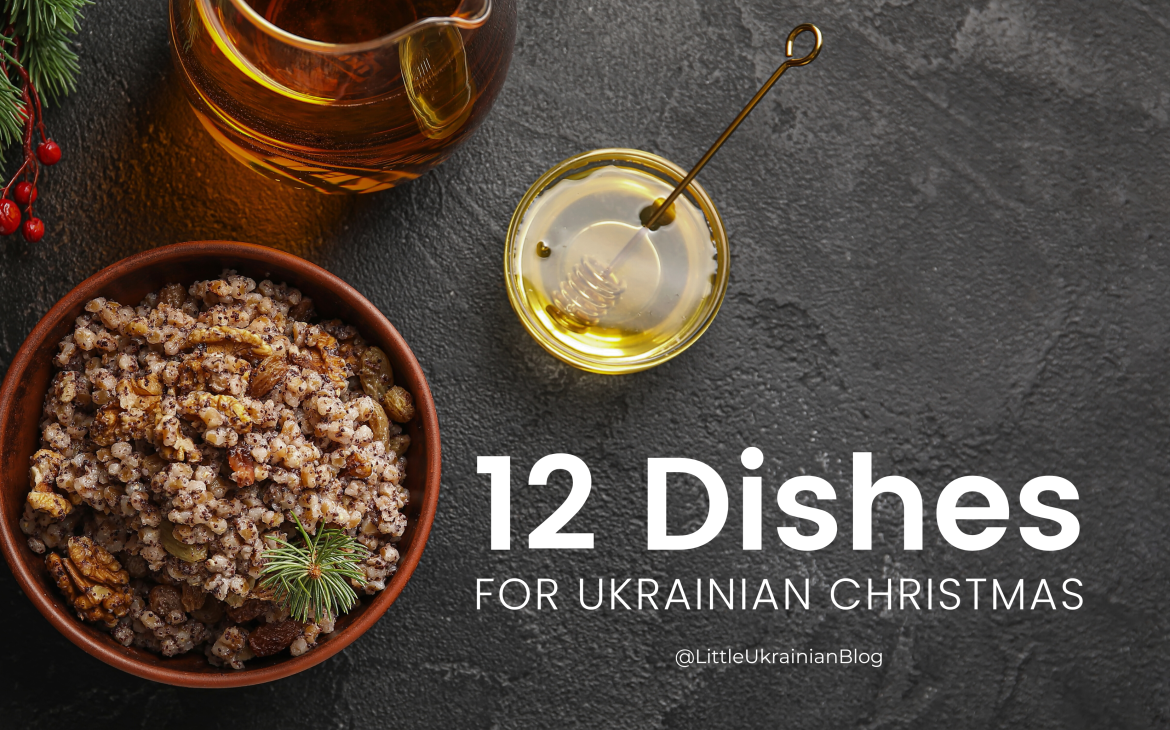
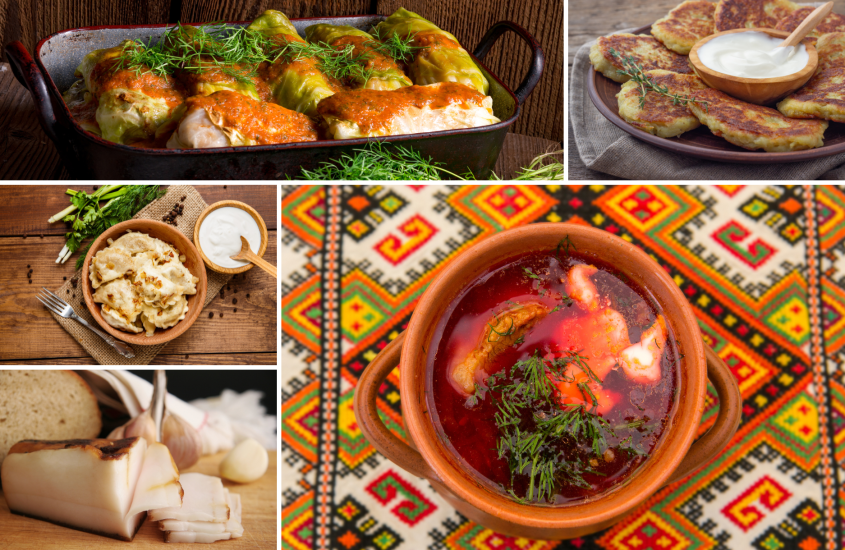
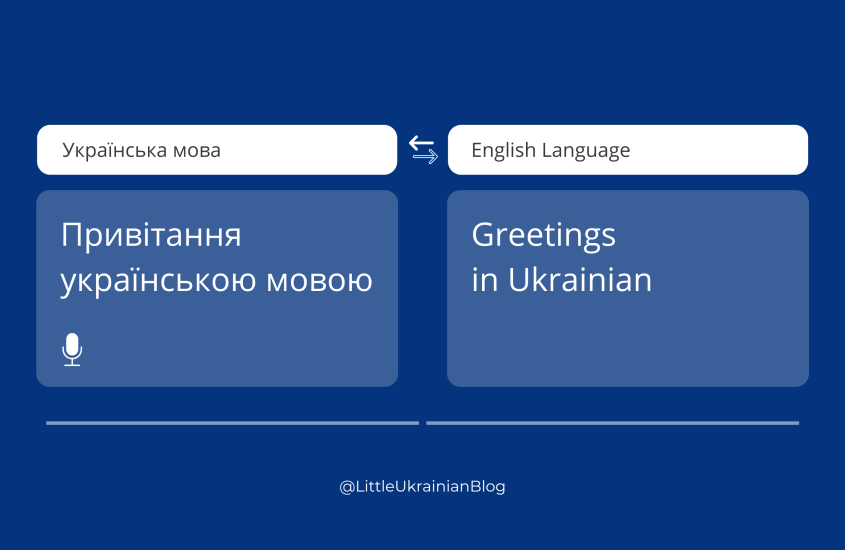
Anna
We usually stick to борщ, вареники та голубці !